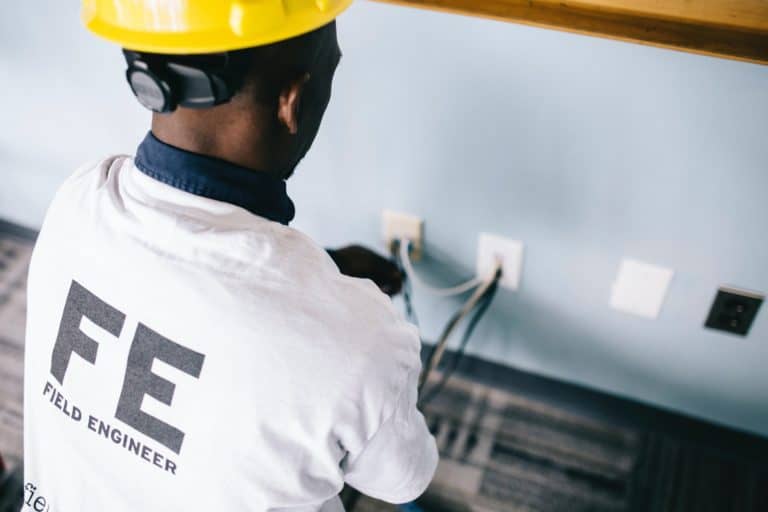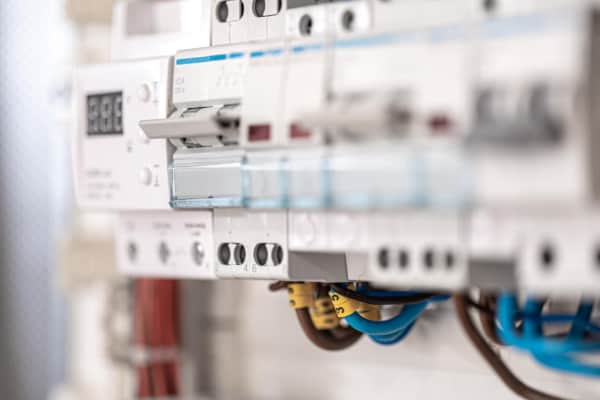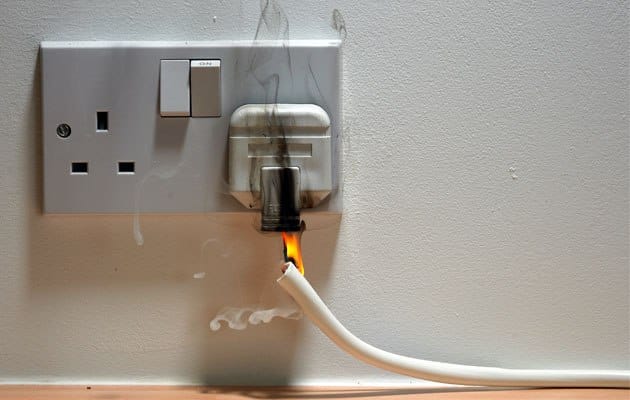Find My Local Expert Is your Heater Energy-Efficient? Most people...
Read More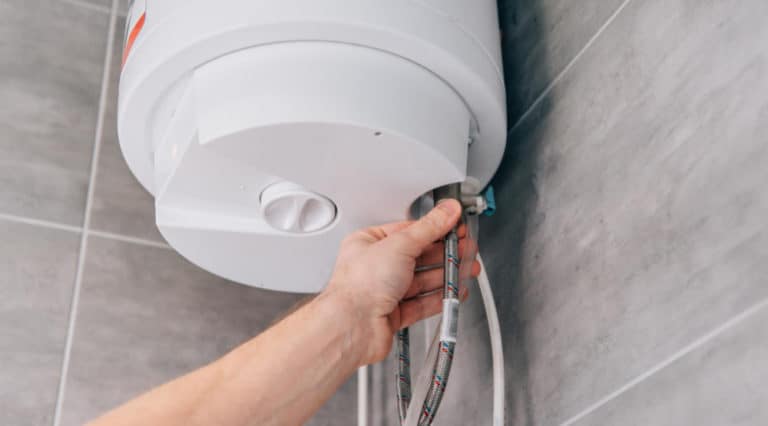
How to Troubleshoot and Fix Electric Water Heaters
Hot water is one of those things that often gets taken for granted in modern society. Most people are lucky enough to have hot water as and when they need it, so it’s understandable that a sudden loss of that convenience can come as a bit of a shock.
There are a few different ways in which domestic hot water can be provided, with electric heaters being a very popular way to go about it. But when things go wrong, it can be a bit of a mystery as to what the problem could be. That is why we’ve put this post together to help you troubleshoot electric water heaters, and hopefully find the problem quickly so that it can be fixed, and you can get your hot water back.
What is an Electric Water Heater?
Before we get into the how, let’s take a little time to establish the what. After all, you can’t fix electric water heater problems when you don’t know what an electric water heater is. The simple and obvious answer is that it is a mechanism by which electricity is used to heat water, but the how might not be quite what you expect.
You probably know the basics of how a kettle works, which is essentially a heating element in the bottom of the kettle that gets hot and heats the surrounding water. It would be understandable to think that electric water heaters work the same way.
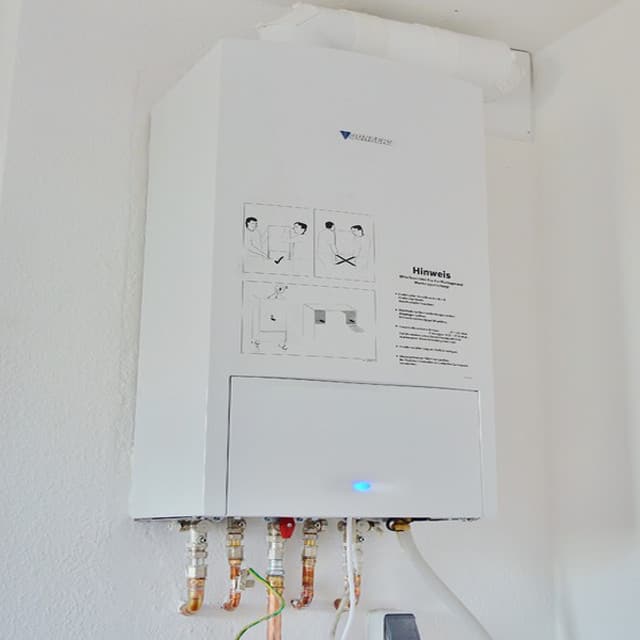
As a matter of fact, this sets up more or less what happens, and you may hear it called an immersion heater. It is essentially a very big kettle. Of course, there is more to it than a kettle. But the basic premise is the same.
Water is fed into an insulated tank where it is heated by a heating element and stored there until it is needed, with the more effective the insulation meaning the more efficient the system. Because hot water rises, the outlet for water is higher up, ensuring that the water being used is water that has already been heated, and not the cooler water that is coming from the feed pipe.
What About Gas?
While gas combi boilers work differently, there is also a gas-based system that works almost identically to the electrical system described above, with the obvious difference being that the heating element is powered by gas, rather than electricity. This is worth knowing because some of the problems you might experience with an electric water heater are also possible with the gas equivalent, though not all.
3 Causes of Electric Water Heaters not Working
Knowing what an electric water heater is and how it works is all well and good, but that doesn’t necessarily help you understand why it’s not working! We’ve pulled together three of the most common causes of electric water heaters not working below, so you can check the symptoms you’re experiencing against this list. Bear in mind that this is not an exhaustive list, so if you are experiencing problems that don’t fit the descriptions below, you may have an entirely different issue.
#1 Electrical Issues
The first and most obvious cause of your electric water heater not working is a problem with the electricity itself. If there is a power cut that will of course affect any electrical appliances in your property, but there is also the prospect of a blown fuse.
Your fuse board is a safety measure to prevent danger to people or property in the event of a short or other electrical issue. It does this by instantly cutting the power to the relevant circuit when the problem is detected. Your electric water heater will most likely be on its own circuit due to it being a large appliance in terms of electrical usage, which means that the fuse for that specific item could trip, killing your water heater, but leaving the rest of your electrical appliances and fixtures in working order.
The easiest way to identify this as the cause of your problem is to check your fuse board for tripped breakers. If you find one that has tripped and can verify that it is the fuse responsible for your electric water heater, that’s part of the problem… but wait.
Before you get excited and reset that breaker to get your hot water back on, bear in mind that something caused it to trip in the first place. While it is not impossible that there could have been some fluke incident that caused the breaker to trip but is not an indication of a larger issue, it is far more likely that there is a problem that needs resolving, and that your breaker will trip again at some point if you just reset it and carry on with your day.
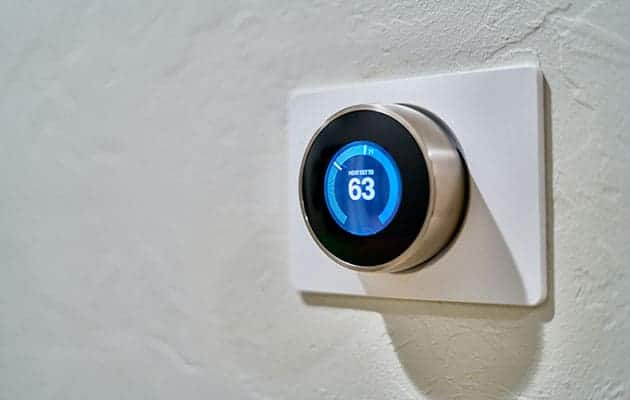
#2 Faulty Thermostat
Your water tank contains something called a thermostat, which is an essential piece of equipment from both a financial and safety perspective. This device detects the temperature of the water and switches the heating element on or off depending on the reading.
As you can probably guess, this is important if you don’t want to waste money heating water that is already more than hot enough. But it is also important from a safety perspective, because an increase of heat in the system brings with an increase in pressure. Granted, the water tank should have a pressure relief mechanism installed, so you shouldn’t have to worry about your water tank exploding, but you don’t want to switch on the tap to fill up the sink for the washing up only to have your hands boiled away by a high-pressure jet of superheated steam!
To be clear, no residential electric water heater should be capable of heating water to that degree, but an increase in pressure does put more strain on the pipes and other parts of your plumbing system, so it’s best to make sure you’re not heating your water too much.
Unfortunately, diagnosing this problem is not a simple task. You can infer that the thermostat may be broken from the fact that the water is far too hot, or not hot enough. If it is not hot at all, it could be the thermostat, but it could also be a number of other things.
#3 Broken Heating Element
One of the “other things’ ‘ that could cause your water to be cold or just warm is a faulty heating element. This is a double-threat problem, since it not only fails to do the job it’s there for, it often results in noticeably higher electricity usage, which means more costly utility bills for you!
Much like the faulty thermostat, there really isn’t an easy way of diagnosing this problem without the expertise and tools for the job. Unless you want to start pulling your hot water tank apart (which we do not recommend you do if you are not knowledgeable in this area), all you can do is infer what might be wrong from the way your hot water system is behaving. And, as we’ve mentioned already, the symptoms of this particular problem can also be the symptoms of a faulty thermostat, which is where the problem lies in trying to determine what the cause of your hot water woes is without proper testing.
If the problem is a faulty heating element, you will almost certainly need to replace it. It is possible that the issues could be further up the line—between the heating element and the power source—but this would be a much rarer occurrence, and something an expert should be able to determine when they check out your hot water system.
Other Problems
We’ve picked three of the most common issues for electric water heaters, but of course, there are plenty of other possible causes. You could have leaking pipes, failing insulation, calcification of your heating elements, and more.
Failing insulation on your water tank is a particularly nefarious problem because, like the faulty heating element, you would be burning money if you let it run. The insulation is there to keep the heat in the tank so that the heating element—which is a costly appliance to run—has to do as little work as possible. The more heat that escapes through the sides of your water tank, the harder that heating element has to work and the more money you have to fork out when the electricity bill lands next month.
Hire a Professional
Ultimately, there is no getting around the fact that your electric water heater is a big sealed tank with most of the important and identifiable parts locked inside, which makes for a less than ideal time diagnosing the cause of your hot water problems. There are certain things that you can often identify easily, such as the aforementioned tripped breaker, or a leak in one of your pipes. But for problems that are going on inside the tank, you will want someone with the tools, knowledge, and experience to get in there and sort things out for you!
You May Also Like...
How To Safely Identify Electrical Faults in Your Home
Find My Local Expert How To Safely Identify Electrical Faults...
Read MoreHow to Prevent Your Circuit Breaker From Tripping
Find My Local Expert How to Prevent Your Circuit Breaker...
Read MoreElectrical Fault Finding
Find My Local Expert Understanding Electrical Fault Finding An electrical...
Read More5 Reasons Why Your Appliance is Tripping the Fuse Board
Find My Local Expert 5 Reasons Why Your Appliance is...
Read MoreNeed your Electric Water Heater Fixed?
My Trusted Expert Guarantee
Experts Have Been Vetted & Approved
